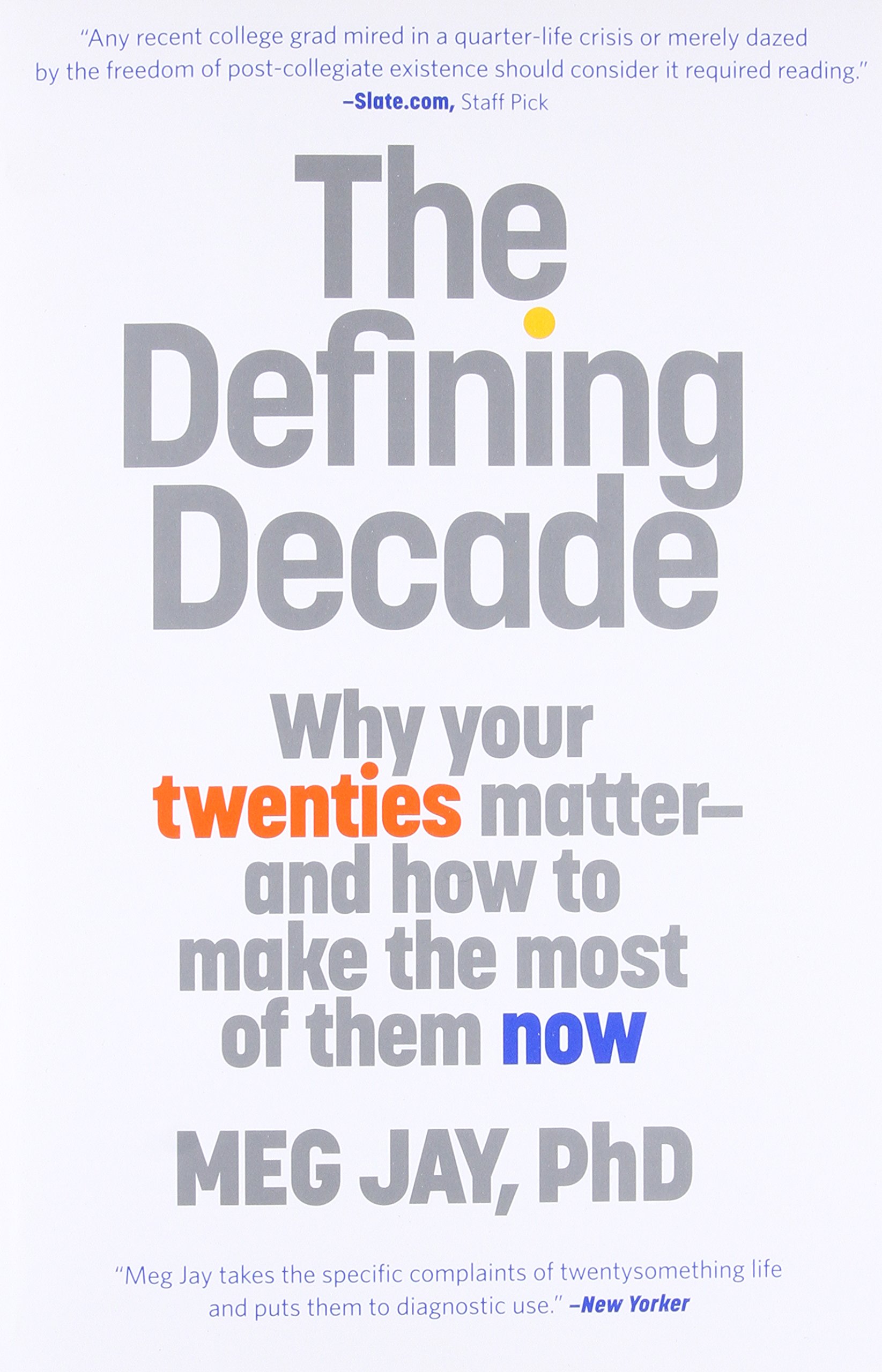
The Defining Decade: Why Your Twenties Matter and How to Make the Most of Them Now
von Meg Jay
A colleague of mine likes to say that twentysomethings are like airplanes, planes just leaving New York City bound for somewhere west. Right after takeoff, a slight change in course is the difference between landing in either Seattle or San Diego. But once a plane is nearly in San Diego, only a big detour will redirect it to the northwest.
Identity capital is our collection of personal assets. It is the repertoire of individual resources that we assemble over time. These are the investments we make in ourselves, the things we do well enough, or long enough, that they become a part of who we are. Some identity capital goes on a résumé, such as degrees, jobs, test scores, and clubs. Other identity capital is more personal, such as how we speak, where we are from, how we solve problems, how we look. Identity capital is how we build ourselves—bit by bit, over time. Most important, identity capital is what we bring to the adult marketplace. It is the currency we use to metaphorically purchase jobs and relationships and other things we want.
The best is the enemy of the good. —Voltaire, writer/philosopher
If we only wanted to be happy, it would be easy; but we want to be happier than other people, which is almost always difficult, since we think them happier than they are. —Charles de Montesquieu, writer/philosopher
In business and culture, we have moved from mass production to mass customization
I asked Ian to consider that maybe that’s what an authentic, unique life is. In the twenty-first century, careers and lives don’t roll off an assembly line. We have to put together the pieces ourselves. Ian’s life could be personalized and changeable, but it was going to take some time and effort—and he would probably need to start with some common parts.
Twentysomething women and men who are dating down—or working down, for that matter—usually have untold, or at least unedited, stories. These stories originated in old conversations and experiences and, so, they change only through new conversations and new experiences.
That is because the more similar two people are, the more they are able to understand each other. Each appreciates how the other acts and how he or she goes about the day, and this forestalls an incredible amount of friction. Two people who are similar are going to have the same reactions to a rainy day, a new car, a long vacation, an anniversary, a Sunday morning, and a big party.
We sometimes hear that opposites attract, and maybe they do for a hookup. More often, similarity is the essence of compatibility. Studies have repeatedly found that couples who are similar in areas such as socioeconomic status, education, age, ethnicity, religion, attractiveness, attitudes, values, and intelligence are more likely to be satisfied with their relationships and are less likely to seek divorce
Life can only be understood backward, but it must be lived forward. —Søren Kierkegaard, philosopher
Because our twenties are the capstone of this last critical period, they are, as one neurologist said, a time of “great risk and great opportunity”.” The post-twentysomething brain is still plastic, of course, but the opportunity is that never again in our lifetime will the brain offer up countless new connections and see what we make of them. Never again will we be so quick to learn new things. Never again will it be so easy to become the people we hope to be. The risk is that we may not act now.
There are all sorts of ways to make commitments to the world around us and, sometimes, in our twenties we have to be forgiving about what being settled or successful means. A great relationship or a job to be proud of may seem elusive, but just working toward these things makes us happier. Twentysomethings who experience even some workplace success or financial security are more confident, positive, and responsible than those who do not.
Even simply having goals can make us happier and more confident—both now and later. In one study that followed nearly five hundred young adults from college to the mid-thirties, increased goal-setting in the twenties led to greater purpose, mastery, agency, and well-being in the thirties